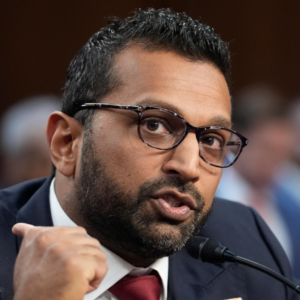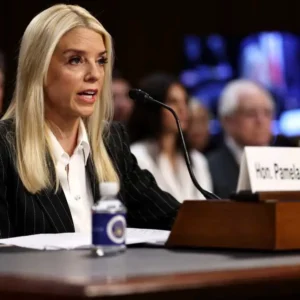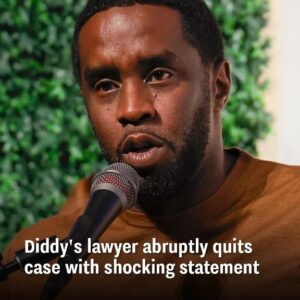In a fiery press conference at the Oval Office on Thursday, President Donald Trump delivered a blistering critique aimed squarely at CNN anchor Kaitlan Collins, accusing her of bias and questioning her credibility. The confrontation, which quickly dominated headlines, saw Trump lash out at Collins and her network with unfiltered, harsh language.
The incident unfolded during a press briefing where Trump was fielding questions on the ongoing conflict between Russia and Ukraine. While addressing a question from another reporter about whether he believed President Putin genuinely desired peace, Kaitlan Collins interrupted with her own query: “Do you trust President Putin?” This interjection set off a rapid-fire exchange that would soon escalate into a full-blown media showdown.
Trump’s response to the question about Putin was measured at first. “I believe that—yeah, I believe that he would like to see something happen. I think he would like to see something happen. I think it could have happened a long time ago,” he remarked, seemingly deflecting the inquiry. However, the tone shifted dramatically when he turned his attention to Collins. With pointed emphasis, Trump accused her of having close ties with his political rival, former President Joe Biden. “I know he [Biden] is a friend of yours,” Trump said, his voice rising as he continued his tirade.
Trump didn’t stop there. In a scathing dismissal of CNN, he declared, “That’s why nobody watches CNN anymore. Because they have no credibility.” His comments implied that the network, and by extension its reporters like Collins, are nothing more than partisan mouthpieces for Biden. The president’s attack resonated with his supporters, who have long criticized mainstream media outlets for perceived bias and misinformation.
The verbal exchange did not end with that one remark. Earlier in the briefing, Collins had attempted to challenge Trump on a separate matter when she tried to interject a question about the impact of tariffs on inflation. As Trump held up a signed reciprocal tariff plan, Collins began, “Mr. President, you won the White House in part because of high inflation. If your tariffs make prices go up—” Before she could finish, Trump cut her off sharply, saying, “Excuse me. We haven’t asked you to speak yet.” This interruption set the stage for the later confrontation that became the focal point of the briefing.
Observers noted that Trump’s combative style in this instance was reminiscent of previous encounters where he clashed with the media, but the attack on Collins marked a particularly brutal moment. The president’s choice of words was designed not only to discredit the reporter personally but also to undermine the overall credibility of CNN as an institution. Critics argue that such remarks are emblematic of a broader trend in which Trump seeks to delegitimize media outlets that do not align with his narrative.
Supporters of Trump cheered his comments, praising his willingness to “tell it like it is” and stand up against what they view as the left-leaning bias of major news networks. “Finally, someone is calling out CNN for their partisanship,” one social media user commented. “Trump’s not afraid to speak his mind,” another added. These reactions illustrate the deep divisions that exist between Trump’s base and his detractors, with each side interpreting the president’s words through vastly different lenses.
However, the fallout from Trump’s remarks has been significant. Critics on the other side of the political spectrum argue that his aggressive approach not only disrespects seasoned journalists like Collins but also undermines the fundamental role of the press in holding the government accountable. “It’s unacceptable for a president to attack the free press in such a personal and derogatory manner,” one media watchdog noted. “These kinds of statements erode trust in our democratic institutions.”
The clash between Trump and Collins is likely to fuel ongoing debates about media bias, the limits of presidential rhetoric, and the responsibilities of reporters in a polarized political environment. With social media platforms abuzz and news outlets dissecting every word, the incident has already become a talking point for political pundits and analysts across the spectrum.
As the Oval Office briefing ended, Trump’s unyielding stance left little doubt about his intent to continue challenging the media narratives he finds unfavorable. Whether this latest outburst will have lasting implications for his relationship with the press or influence public opinion remains to be seen. What is clear, however, is that the battle between Trump and his critics is far from over.
In a political climate marked by fierce debates and razor-thin margins of public approval, incidents like these underscore the enduring conflict between the executive branch and the media. For those who support Trump’s outspoken style, his remarks are seen as a necessary corrective to what they perceive as widespread media bias. For his opponents, they represent a troubling disregard for the principles of free speech and journalistic integrity.





